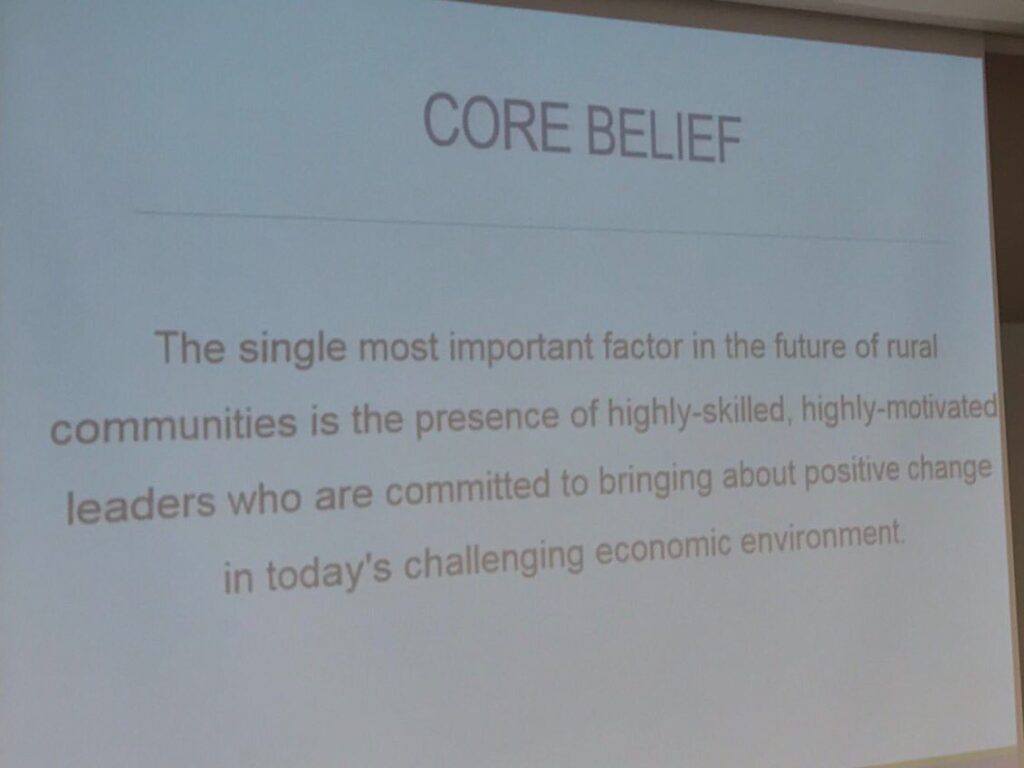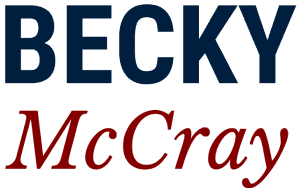Training better leaders doesn’t mean squat
A couple of times lately people have said something about rural towns needing good leaders that really set me off.
One person (I’ve forgotten who) posted this slide from a presentation they were watching:

It says: “Core belief: The single most important factor in the future of rural communities is the presence of highly-skilled, highly-motivated leaders who are committed to bringing about positive change in today’s challenging environment.”
I disagree. It hasn’t got squat to do with training or motivating leaders.
When anyone says “leaders,” people think of officials. They think of the people with titles, positions and elected offices. City council members. Economic developers. County commissioners. Chamber of commerce directors. You know, leaders.
It’s not about leaders. The very word “leader” binds us in the old way of thinking about how we work together. You could try to redefine “leaders” to mean “all of us who take action” but that’s not what people think of. They think “officials.”
It’s not leaders. It’s all of us.
“The time has passed when a few influential people could gather in a room to decide what a city will be. Instead, a city’s future is determined by hundreds of actions taken daily by thousands of people based on what they believe about a city’s future and their role in it,” Carol Coletta said in Designed to Scale.
As long as we focus on training better leaders, building better committees, creating better consensus, we are focusing on preserving the very structure that keeps us from moving forward. We’re stopping ourselves from adopting the tools that are readily available to us and the behaviors and ways of working together they make possible.
“A shift in the thinking and actions of citizens is more vital than a shift in the thinking and action of institutions and formal leaders,” Peter Block said in his book Community.
Yes, you have to start with Gathering Your Crowd, with your focus on a few willing people as your keys, but when you call them “leaders” you reinforce the problem and the old system of how we work together.
Stop worrying about the leaders. Focus on the people instead. Gather Your Crowd. Build Connections. Take Small Steps.
Keep shaping the future of your town,
Becky
PS – Our next webinar will be on the Rural Jobs Creation Strategies
